mTOR drives its own activation via SCF(βTrCP)-dependent degradation of the mTOR inhibitor DEPTOR
- PMID: 22017875
- PMCID: PMC3229299
- DOI: 10.1016/j.molcel.2011.08.030
mTOR drives its own activation via SCF(βTrCP)-dependent degradation of the mTOR inhibitor DEPTOR
Abstract
The activities of both mTORC1 and mTORC2 are negatively regulated by their endogenous inhibitor, DEPTOR. As such, the abundance of DEPTOR is a critical determinant in the activity status of the mTOR network. DEPTOR stability is governed by the 26S-proteasome through a largely unknown mechanism. Here we describe an mTOR-dependent phosphorylation-driven pathway for DEPTOR destruction via SCF(βTrCP). DEPTOR phosphorylation by mTOR in response to growth signals, and in collaboration with casein kinase I (CKI), generates a phosphodegron that binds βTrCP. Failure to degrade DEPTOR through either degron mutation or βTrCP depletion leads to reduced mTOR activity, reduced S6 kinase activity, and activation of autophagy to reduce cell growth. This work expands the current understanding of mTOR regulation by revealing a positive feedback loop involving mTOR and CKI-dependent turnover of its inhibitor, DEPTOR, suggesting that misregulation of the DEPTOR destruction pathway might contribute to aberrant activation of mTOR in disease.
Copyright © 2011 Elsevier Inc. All rights reserved.
Conflict of interest statement
Figures
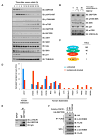

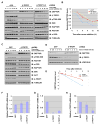
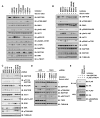

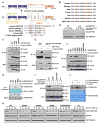
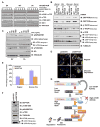
Comment in
-
Cell signalling: mTOR targets its own inhibitor.Nat Rev Mol Cell Biol. 2011 Nov 9;12(12):769. doi: 10.1038/nrm3229. Nat Rev Mol Cell Biol. 2011. PMID: 22068633 No abstract available.
References
Publication types
MeSH terms
Substances
Grants and funding
LinkOut - more resources
Full Text Sources
Other Literature Sources
Molecular Biology Databases
Research Materials
Miscellaneous

